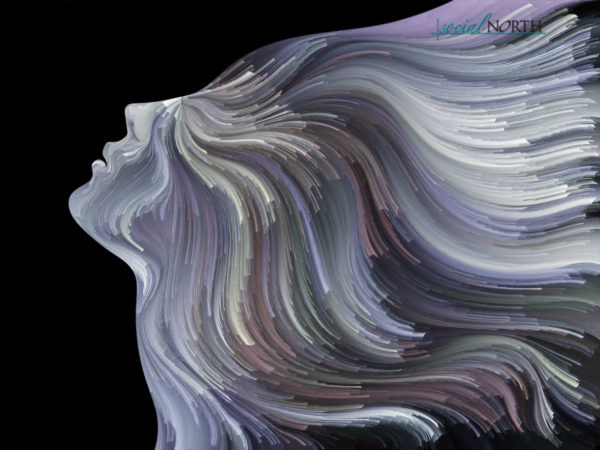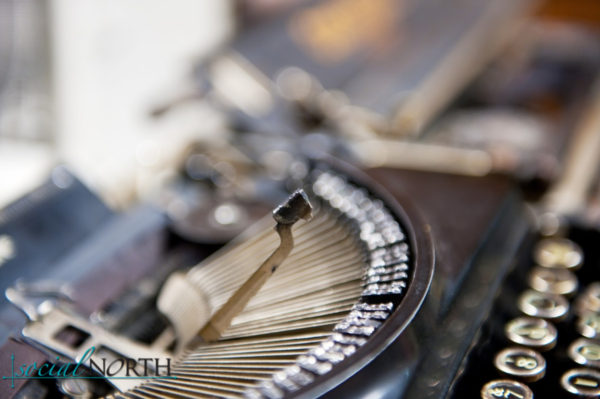Honoring the relationship between creativity, solitude and connection
I’ve written all my life but if you asked me if I enjoy writing, the answer is complicated. For me, the act of writing is most often a painful recap of my intellectual limitations, a stark reality that I’m not as creative (or smart or pithy) as I’d like to believe. For all the articles and blog posts I’ve written (and rewritten and polished and honed) my writing process is a meandering, maddening zig-zag path paved with insecurity.
 But writing, for me, is addictive. My mind craves the enjoyment of stringing thoughts and ideas together to create something meaningful, something lasting. As I push through mismatched words and awkward, not-quite-right phraseology, I learn more about myself and those around me. My writing process is as much an act of solitary defiance as it is a desperate attempt to connect with the world.
But writing, for me, is addictive. My mind craves the enjoyment of stringing thoughts and ideas together to create something meaningful, something lasting. As I push through mismatched words and awkward, not-quite-right phraseology, I learn more about myself and those around me. My writing process is as much an act of solitary defiance as it is a desperate attempt to connect with the world.
If you ask me if I’m a good writer, the honest answer is meh. I’m average at best. And like most writers, success doesn’t reassure me. While you might think writing gets easier, for me, it doesn’t. Every time I begin to write, I feel like I’m white-knuckling my way through a snowstorm on a deserted highway with a screaming child in the backseat. Failure is almost certain.
But then I take a deep breath. And I stop thinking. If you play an instrument or run or dance or do anything that requires muscle memory, you’ll understand how trusting your body to know how and when to take the first steps is often the hardest, most important step. As crazy as it sounds, my creativity craves routine, the pedestrian, the expected, the simple memories hidden in my muscles. Once I control all the variables and give over to those muscle memories, my imagination is ready to reveal her beautiful, raw unfettered, secrets.
How teaching writing taught me to be a better writer
When I taught creative writing at a women’s prison, some of my students were there because of theft or drug trafficking but some had killed a spouse or a parent or a child. Each one approached the blank page in much the same way I do – with a mixture of fear, curiosity and maybe daring. What will happen if I actually put on that page what’s truly in my head and heart? Will I be seen as a monster, a victim or simply unworthy of love or attention. Or, hopefully thinking, someone lovely and precious.
Teaching the same skills in a college and later to corporate clients, the process didn’t change much. Committing pen to paper (or fingers to a keyboard) is an extraordinary act of faith. The fear of “doing it wrong” is rooted deep within us and the moment we give over to the project is the moment we expose our innermost selves to scrutiny. Or salvation, depending on your viewpoint.
When I was published in a Chicken Soup for the Soul book, I was overwhelmed by the response of my local community. The regional paper interviewed me and neighborhood book stores invited me read my essay at events for their customers. And it always amazed me when I’d look up and see people crying. Because of my words. My truth was also their truth. It connected me to them in ways I hadn’t imagined. And that connection gave me the courage to continue writing, to continue sharing.
My creative process, which you’re welcome to steal or adapt
Everyone’s creative process is different and depending on the medium you’re working in, you’ll need different tools and triggers to fire yours in the direction you want to go. These are mine…
- Set the stage. Dedicate a spot that’s solely for your creative process. If you sit at a desk for work, move to an armchair or sofa or even a coffeeshop. And when you find your spot, turn off your email, social media, the ringer on your phone – this time is reserved for you and your thoughts alone.
- Go to the bathroom. It might sound silly but making sure you’re physically comfortable lets you concentrate on the work at hand. While you’re at it grab yourself a (non-alcoholic) drink so your brain stays hydrated. A beer or a glass of wine might promise relaxation but it also dulls my brain, making it harder for me to connect to creativity.
- Just do it. This is harder than it sounds. Commit to keeping your fingers moving across the keyboard – or not lifting your pen from the page – for 5 minutes. And then 10 minutes. And give yourself permission to write drivel, sludge, garbage, ignoring grammar, punctuation, spelling mistakes – all of it. If you focus on the “correctness” of your writing, that judgy editor who doesn’t believe in you will win. If you commit to writing, you’ll eventually find a nugget that catches in your brain or gets your heart racing – and that’s when things start to get interesting.
- Understand this will take time. Some people can unleash their creativity quickly, others it takes time. Lots of time. I’ve been keeping a journal since I was 12 and while most of it is nonsense, not fit for human consumption, it helps me tap into my subconscious and open new doors to my creativity. If you’re committed to the process, you’ll eventually find yourself heading in new and exciting directions.
- Edit like a drill sergeant. While free-writing creates the gravy-train of content, editing distills it into something digestible. Once you’ve found the heart of your story, the editing begins and this process will strengthen your story, give it richness and depth. Because, to be honest, the more you edit and remove, the more you’ll find to add back in.
- Share your creation with the world. While your content may not yet be ready to be published, it needs an audience. But tread carefully with your audience selection. If I want my writing to be seen as perfect and me as the wonder girl who created it, my Mom gets first read. If I want someone to pull it apart, word by word, and make me defend my thought process and my goals, my husband gets it. Sometimes they both get it because I need the cheerleading from my Mom after my husband shreds it.
Whoever you chose to share your writing with, understand that sharing is exactly what you should be doing with it – when you’re ready. Creativity, in and of itself, is a communion of our human lives. We aren’t born alone, nor do we live our lives alone. Yet we feel alone in our own heads, in our experiences. Sharing the product of our creativity is like saying to others, I’m here too. I felt something too. Let’s talk about it, learn from it, learn from each other.
Whether you publish your writing or it becomes a love note to your future self, I hope you never doubt the importance of it. And if you ever need a cheerleader to push you a little further forward, you know where to find me. In the meantime, let’s get you writing…


Latest comments